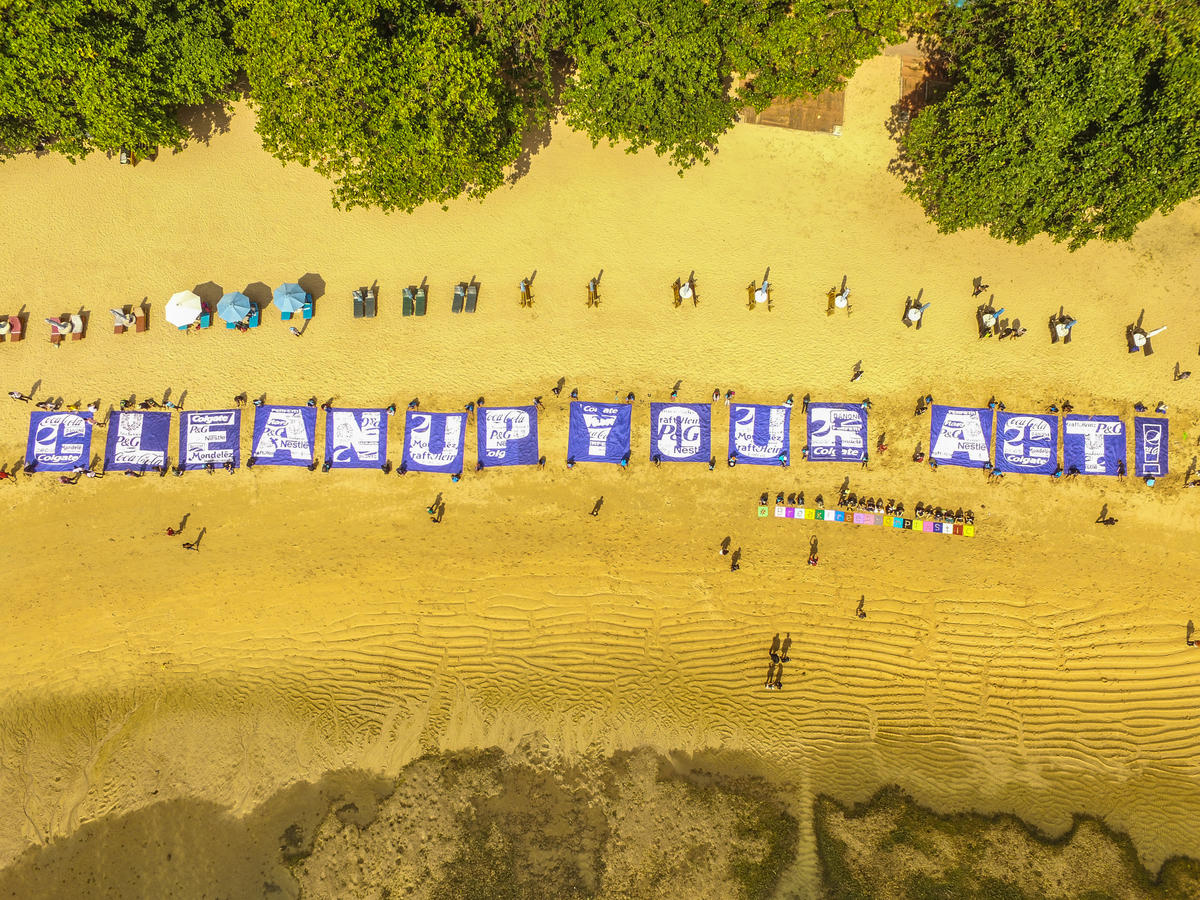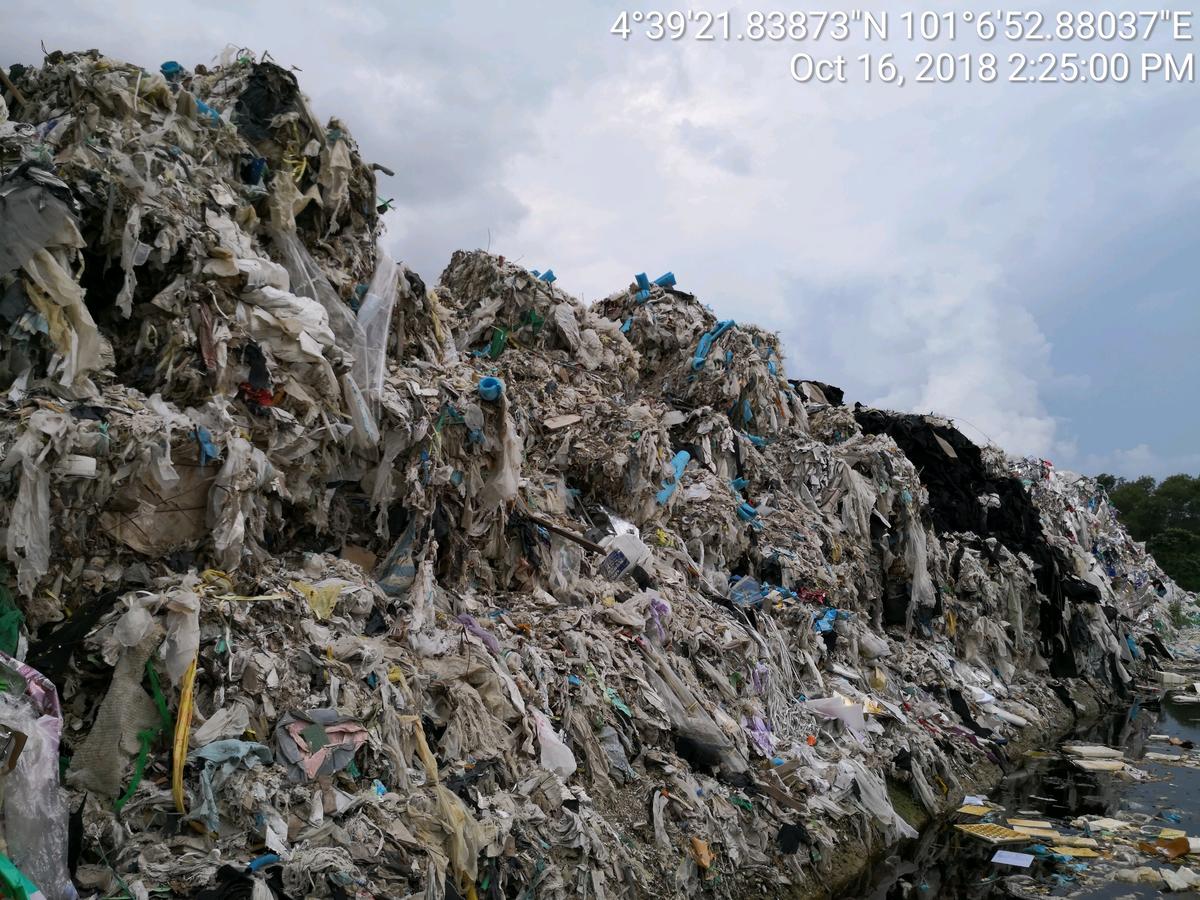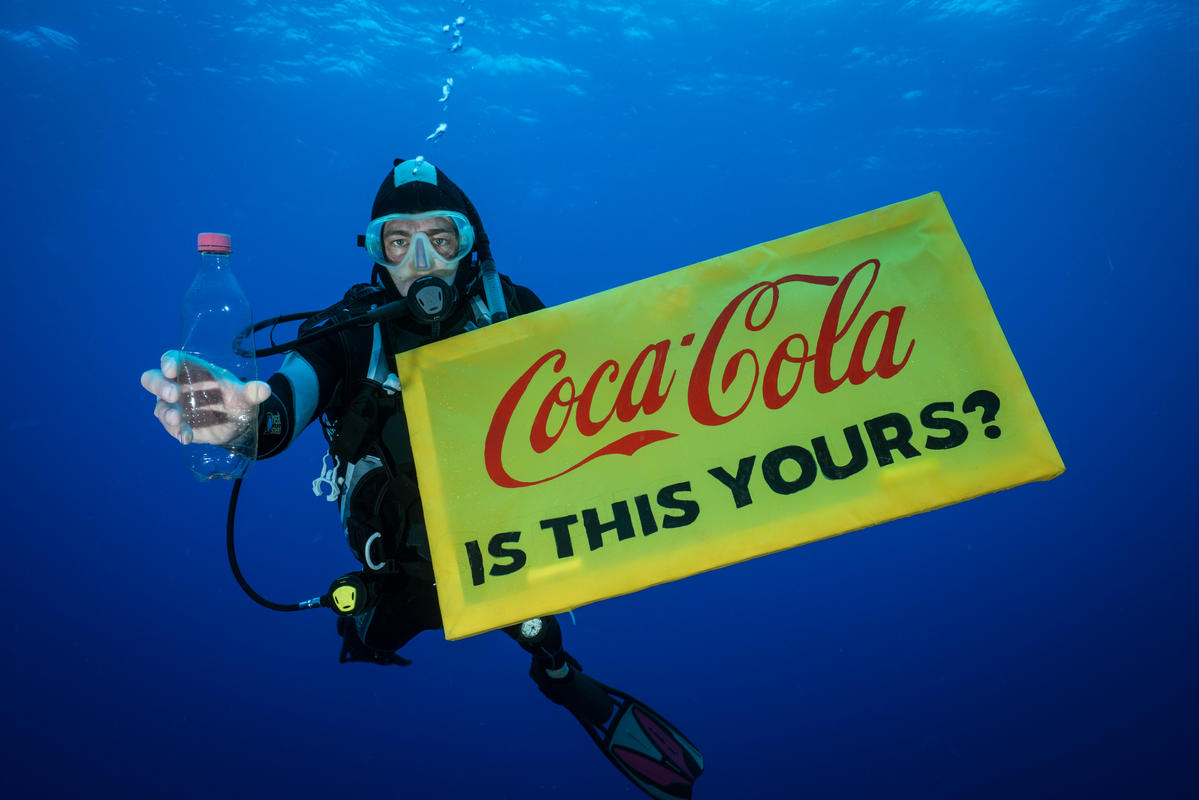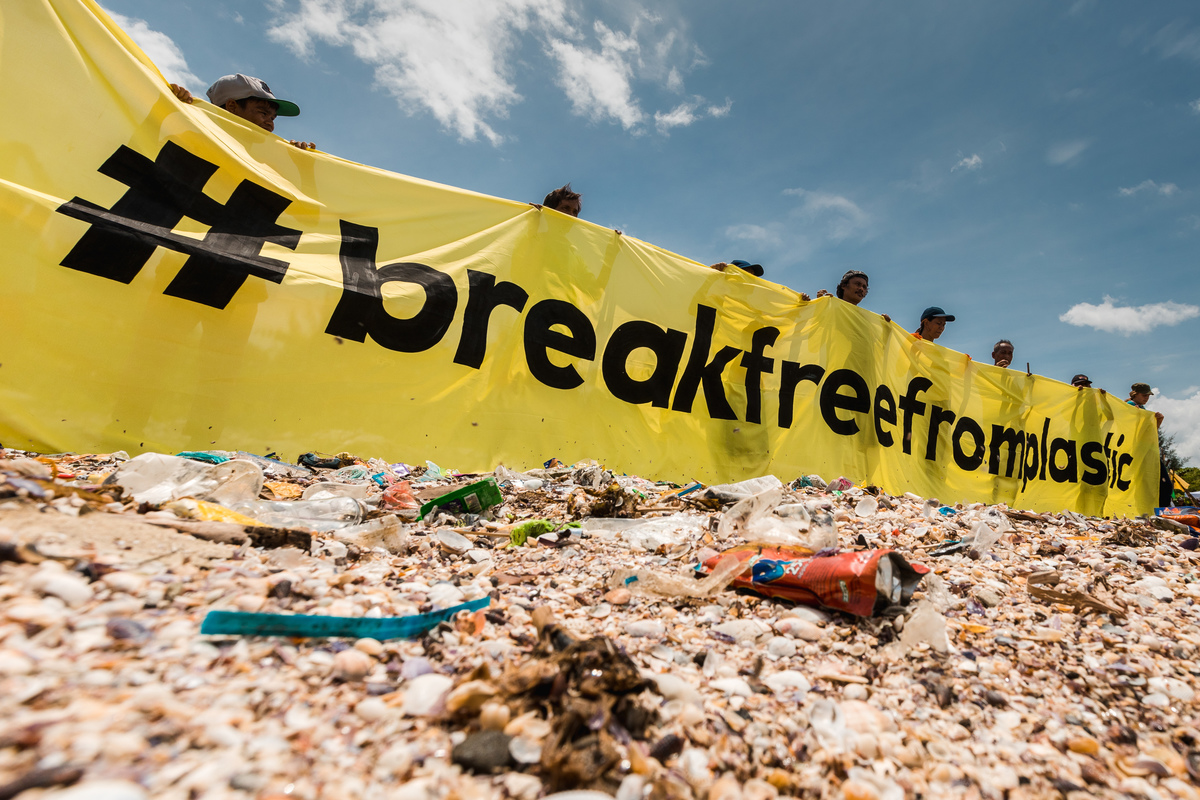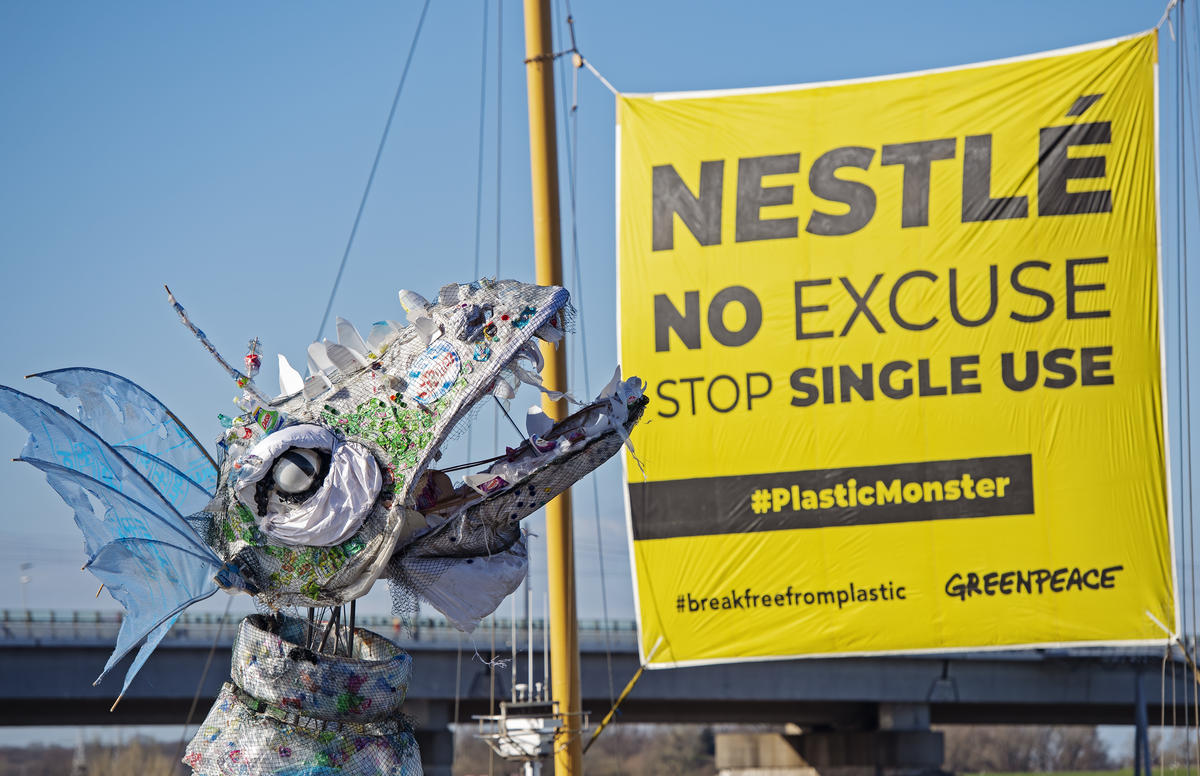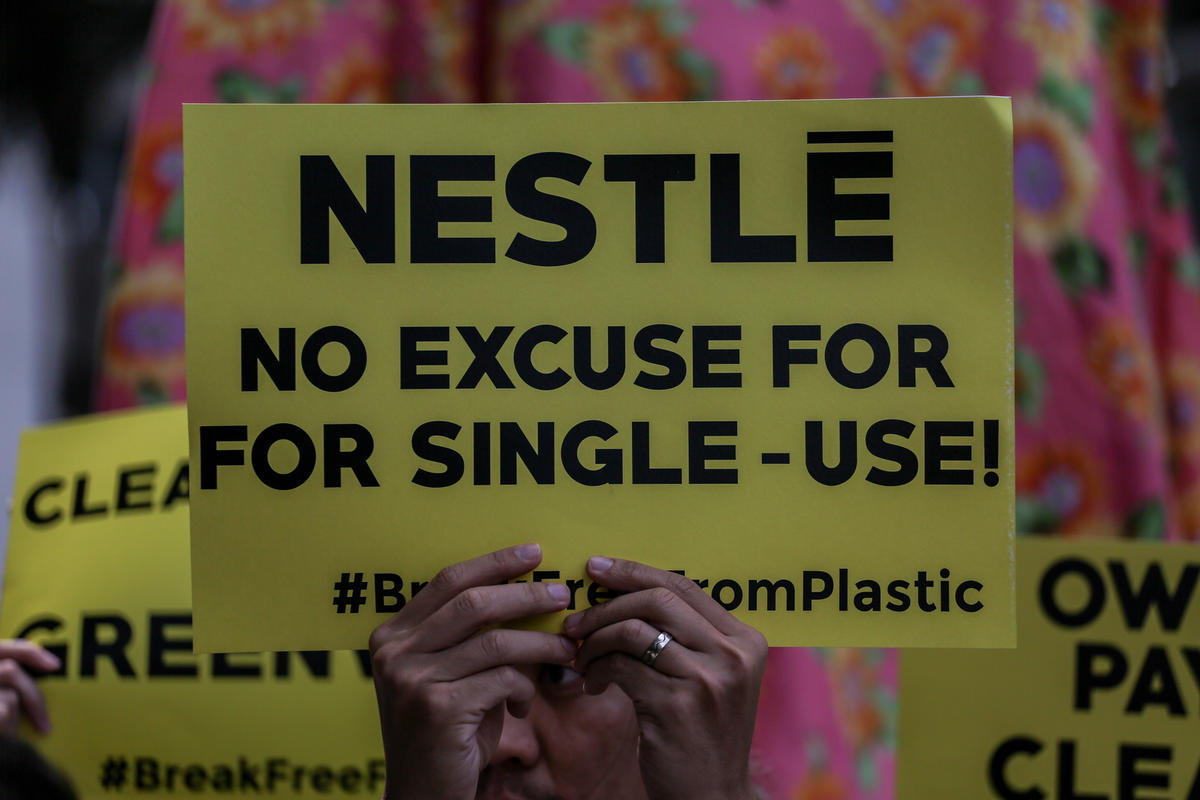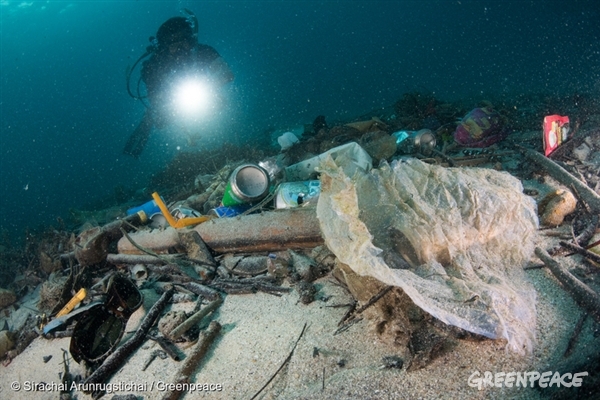-
Nestlé and Unilever named top plastic polluters following Philippines brand and waste audits
Manila, Philippines – Nestlé and Unilever are responsible for a quarter of the branded throwaway plastic driving the plastic pollution crisis in the Philippines, according to a report published today…
-
Greenpeace: ‘Recycling’ from developed world dumped in Malaysia and left to rot
Malaysia is the new dumping site for plastic ‘recycling’ from more than 19 countries.
-
The Recycling Myth
In many places a waste management system exists that claims to dispose, incinerate or recycle collected plastic waste. In reality, most of the plastic waste generated in high-income countries is transported to low- and middle- income countries, where the plastic waste is imported to be recycled or further processed.
-
Coca-Cola, Nestlé, Danone, Mars, Pepsi and Unilever sign global plastics pledge but still haven’t prioritized reduction
Bali, Indonesia- Greenpeace has cautiously welcomed the New Plastics Economy Global Commitment announced today by the Ellen MacArthur Foundation (EMF), saying that it allows for too much flexibility. Coke, Danone, Mars, Pepsi and Unilever are among the 200+ signatories that have pledged to tackle plastic pollution, though Greenpeace, a member of the Break Free From…
-
Global survey reveals FMCG companies’ contribution to plastic pollution crisis
Jakarta– Fast moving consumer goods (FMCG) corporations are a predominant force behind the throwaway economic model driving the plastic pollution crisis, according to a comprehensive sector survey Greenpeace International released today. None of the companies surveyed have plans to put the brakes on the growing production and marketing of single-use plastics, while the solutions they are exploring will only perpetuate…
-
Coca-Cola, PepsiCo, and Nestlé found to be worst plastic polluters worldwide in global cleanups and brand audits
Manila, Philippines – Coca-Cola, PepsiCo, and Nestlé were the most frequent companies identified in 239 cleanups and brand audits spanning 42 countries and six continents, the Break Free From Plastic movement announced today. Over 187,000 pieces of plastic trash were audited, identifying thousands of brands whose packaging relies on the single-use plastics that pollute our…
-
Nestlé misses the mark with statement on tackling its single-use plastics problem
Nestlé, released a statement that does not include clear targets to reduce and eventually phase out single-use plastics.
-
Nestlé, Unilever, P&G among worst offenders for plastic pollution in Philippines in beach audit
Manila - A week-long beach clean up has exposed the companies most responsible for plastic pollution after an audit of plastic waste conducted on Freedom Island, a critical wetland habitat and Ramsar site [1] spanning 30 hectares in Manila Bay - one of the worst areas for plastic pollution in the Philippines.
-
Producer responsibility: The key to solving Thailand’s plastic crisis
A report from Science Magazine in 2015 showed that Thailand is now among world’s biggest contributors of ocean waste. A shocking eight million tons of plastic enters the ocean every…
-
Greenpeace tells ASEAN: Act on plastics pollution in region’s oceans
Greenpeace is asking ASEAN governments to stiffen policies on waste management to arrest the rising rate of waste being dumped into the ocean and finding their way to the open seas.

